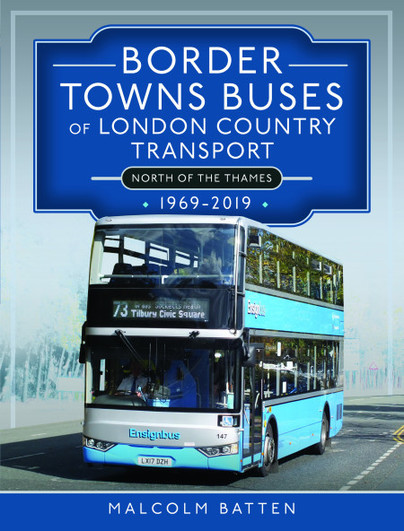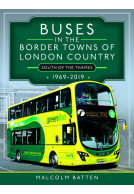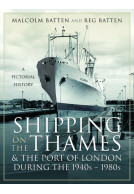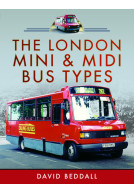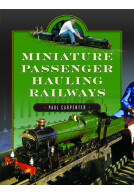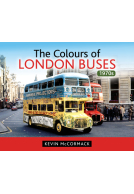Border Towns Buses of London Country Transport (North of the Thames) 1969-2019 (Hardback)
By
Malcolm Batten
Imprint: Pen & Sword Transport
Pages: 160
Illustrations: 150 colour and 50 mono integrated
ISBN: 9781399096096
Published: 5th April 2024
Imprint: Pen & Sword Transport
Pages: 160
Illustrations: 150 colour and 50 mono integrated
ISBN: 9781399096096
Published: 5th April 2024
You'll be £28.00 closer to your next £10.00 credit when you purchase Border Towns Buses of London Country Transport (North of the Thames) 1969-2019. What's this?
+£4.99 UK Delivery or free UK delivery if order is over £40
(click here for international delivery rates)
Order within the next 1 hour, 14 minutes to get your order processed the next working day!
Need a currency converter? Check XE.com for live rates
(click here for international delivery rates)
Order within the next 1 hour, 14 minutes to get your order processed the next working day!
Need a currency converter? Check XE.com for live rates
| Other formats available - Buy the Hardback and get the eBook for £1.99! | Price |
|---|---|
| Border Towns Buses of London Country… ePub (356.5 MB) Add to Basket | £15.59 |
London Transport was created in 1933 with monopoly powers. Not only did it have exclusive rights to run bus (and tram and trolleybus) services in the Greater London area, it also ran services in a Country Area all around London. Green Line express services linked the country towns to London and in most cases across to other country towns the other side of the metropolis. This country area extended north as far as Hitchin, east to Brentwood, south to Crawley and west to Windsor.
But what of the towns at the edge of the country area? Here the green London Transport buses would meet the bus companies whose operations extended across the rest of the counties of Essex, Bedfordshire, Buckinghamshire etc. In some cases the town was at a node where more than one company worked in. At Luton there was a municipal fleet. Elsewhere, such as at Aylesbury there were local independent operators who had a share in the town services.
It would all change from 1970 when the London Transport Country Area was transferred to the National Bus Company to form a new company named London Country Bus Services. This would later be split into four separate companies. Deregulation in 1985 and privatisation in the 1990s led to further changes in the names and ownership of bus companies. Consolidation since then has seen the emergence of national bus groups – Stagecoach, First Group, Arriva and Go-Ahead replacing the old names and liveries. But retrenchment by these companies has given an opportunity for new independent companies to fill the gaps.
This book takes the form of an anti-clockwise tour around the perimeter of the London Country area, north of the Thames featuring a number of key towns starting at Tilbury and ending at High Wycombe, illustrating some of the many changes to bus companies that have occurred.
As reviewed by
Buses Magazine - August 2024
About Malcolm Batten
Reg Batten was born in 1914 and lived in East London’s Dockland, where his father was a boilermaker working in the Royal Docks. With a lifetime interest in shipping, after retirement he spent much of 1976 to 1983 recording the scene around the Royal Docks and Tilbury as cargo handling methods changed and the docks adapted, until the final closure of the ‘Royals’.
His son, Malcolm Batten has inherited an interest in shipping and has had two books published about modern Thames shipping in the 21st Century.
More titles by Malcolm Batten
Customers who bought this title also bought...
Other titles in Pen & Sword Transport...







